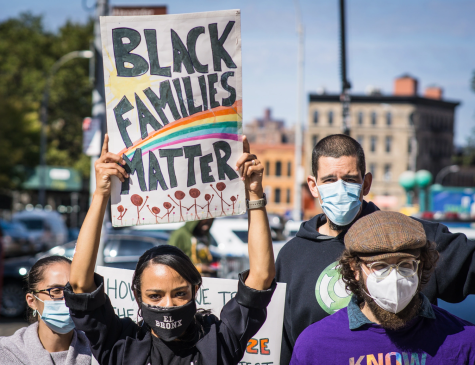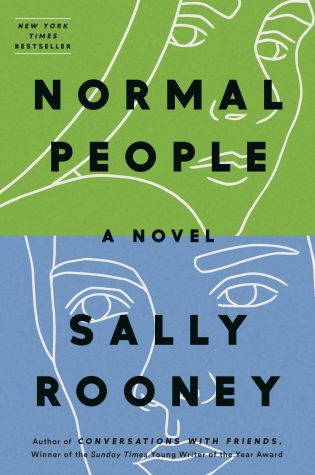Dr. King’s living revolution
We are taught to honor the civil rights movement and its heroes as dead history. White people have heralded the arrival of ‘post-racial America’ for longer than Obama has been president. The dream of America without systematic racism and prejudice is so appealing that it often provides cover for terrible ongoing abuses.
When a vigilante gunned down Trayvon Martin on the street, Obama mentioned that his own son would have looked like the boy. He was trying to help white America understand living under the threat of state sanctioned violence. Ironically, he was immediately attacked for promoting racial division.
Sarah Palin challenged President Obama to “drop the race card” last week, on Martin Luther King Day. She believes that we have entered post racial America and that calling attention to race amounts to race baiting.
Which makes sense if she is blind to ongoing economic discrimination and believes that the civil rights struggle is over. It must be, since she has no problem with black people, personally.
Our government, our schools, and the media are trying to make us forget that we live under the soul crushing capitalist system Dr. King died fighting.
As The Atlantic put it, “When Americans stop to commemorate Dr. Martin Luther King, Jr. each year, we tend to do a great disservice to the man’s legacy by glossing over his final act as an anti-poverty crusader.”
When shot, Dr. King was organizing a march on Washington called “The Poor People’s Campaign.” He promised, “We are going to bring the tired, the poor, the huddled masses, [to the National Mall].”
He intended to construct a tent city shoving joblessness and economic desperation into the faces of the privileged. I think of Occupy, and how novel the idea felt in October 2011.
One of my professors at California State University, East Bay taught Dr. King’s life as a shining moment of possibility followed by violent, irrational backlash against white America which caused the “tragedy” of Oakland’s murder rate, crumbling infrastructure and epidemic petty crime.
My professor claimed these problems were caused by self-destructive black culture, which had been biting the hand that fed it since the civil rights movement was derailed by Dr. King’s assassination. Malcolm X has been reduced to a cautionary tale, a warning against getting too uppity when rebellion is pointless.
In his world, multigenerational poverty, systematic housing, banking, job, school, police, and street discrimination stopped after 1964, since civil rights were achieved at the legal end of discrimination.
Example: Bank of America was fined $2 million for racial discrimination this September. Weeks ago Cargill Meat Solutions paid out $2.4 million to settle allegations of racial and sex discrimination.
A recent study of hiring practices at Northwestern University found that African Americans are less than half as likely to be called back for a job interview than whites.
Dr. King knew racial and economic justice were a package deal, saying, “If a man doesn’t have a job or an income, he has neither life nor liberty nor the possibility for the pursuit of happiness. He merely exists.”
My professor clung to the idea that the world magically reset in 1964, because it lets him believe he earned his place on his own merits.
This is why those comfortable in their privilege must believe the revolution of civil rights is over, the revolution of labor never had anything to do with it, and the condition of their neighbors is due to individual faults rather than systematic oppression.
This insane history makes sense if you divorce racial from economic justice. Take a simple example. As an African American man looking to buy a home in the 1950’s in America, the federal government worked with lending organizations to ensure you could only buy in certain neighborhoods, if you were allowed credit at all.
Then in the 1970’s, great construction projects ran interstates across the country, and through the parts of cities containing black-owned homes.
In West Oakland, the interstate 880 and 980 junction destroyed a Blues district, the interstate 80 flyover to the Bay Bridge and the post office sorting facility mowed down whole neighborhoods and the BART line destroyed a second arts district.
When he was considered a threat to economic oppression and a potential communist the stalking and harassment Dr. King endured at the hands of the COINTELPRO program included illegal surveillance and rumormongering.
A tape of Dr. King carousing was sent to him with a letter encouraging him to kill himself. A Senate Select Committee in 1970 concluded that the FBI was waging an intensifying war to discredit him and neutralize the Southern Christian Leadership Conference.
Transforming government persecution to veneration in mere decades seems shocking. But consider how the government, the institutions of the media, and the aging boomer intellectual class steered public perception away from the parts of King’s message that threatened the status quo.
Hoover hated Dr. King as a labor leader and potential “messiah” for black nationals. His legacy has been sanitized of these disruptive ideas.
Noam Chomsky explained this process in “Manufacturing Consent.” Misrepresentative news is not the result of a vast, centralized conspiracy but the natural product of many people acting independently in their own self-interest. These actions create the myth the civil rights struggle and race that keeps change safely in the past and claims that things are the way they should be, because that’s how people are.
We live in the shade cast by this intellectual and moral titan. Whether history repeats as a farce, tragedy, or revolution depends largely on our actions. Do we watch our heroes co-opted into pillars of the status quo, or do we struggle to reclaim them? How dare we call Dr. King our hero without doing the work to learn who he was? What would he ask from us today?














